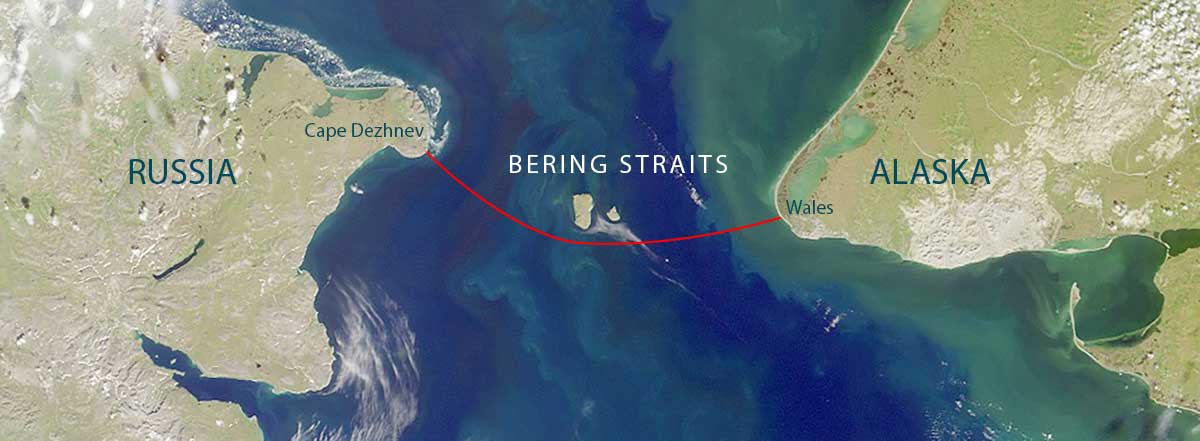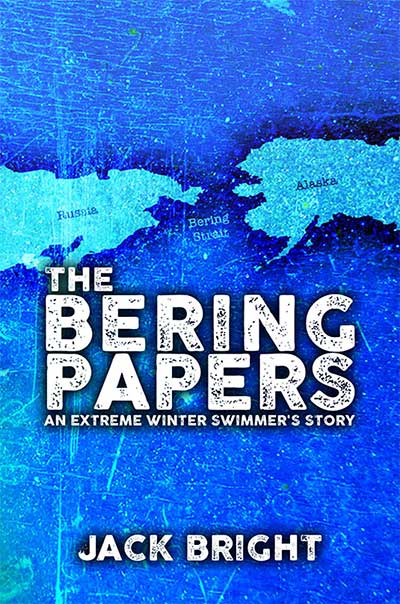 Jack Bright’s The Bering Papers describes the epic attempt to swim from Russia to Alaska crossing the treacherous Bering Straits with a team of international swimmers, the UK being represented by himself and Jackie Cobell.
Jack Bright’s The Bering Papers describes the epic attempt to swim from Russia to Alaska crossing the treacherous Bering Straits with a team of international swimmers, the UK being represented by himself and Jackie Cobell.
Amongst many things, we find out that this remote part of the world is historically important and politically symbolic, which proved to be both a help and a hinderance in the very complicated planning of the event.
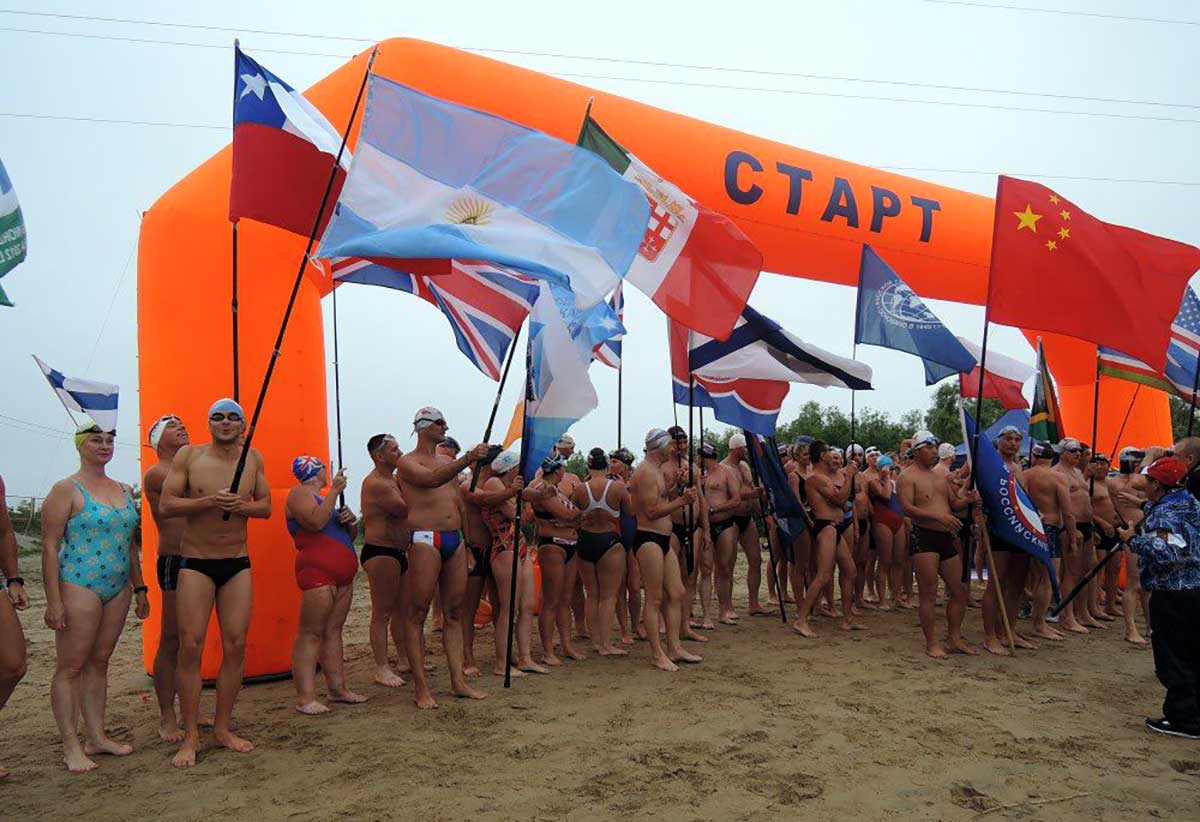
Russia and America have not always been separated by water, and back in the Pleistocene age you could have walked across the land bridge that joined the two continents. It is interesting to learn that the first inhabitants of North America travelled this route from as far as China.
The naming of the Straits comes from an early Russian navigator Vitus Bering who led an expedition in 1741 to discover America’s western shore. Sadly, on his return his ship ran into storms and was forced to land on a remote island where he died of scurvy. It was James Cook who dedicated this dangerous stretch of water to the memory of Bering while mapping the Alaskan coast nearly thirty years later.
So with a history of daring and disappointment it is no surprise that swimming the Straits was not going to be an easy task.
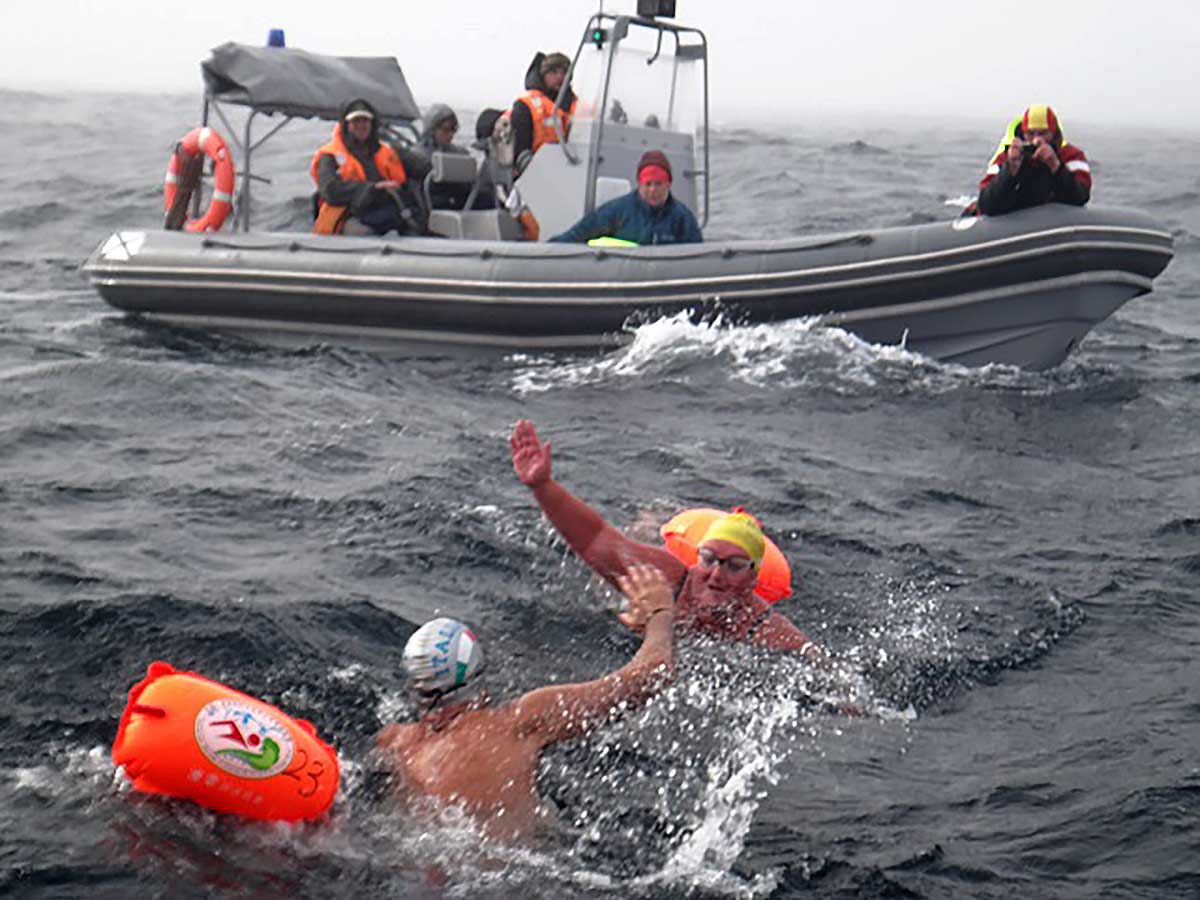
British born Jack started his love of cold water swimming in Poland back in 2008. The book traces his early excitement of discovering the sport and detailed accounts of how he prepares mentally and physically, including a 5 minute sea swim at minus 1·7°C which makes our Brockwell Lido swimming look rather tame. I think I would prefer his Russian friend’s training which includes hot baths, vodka and caviar. “Anything can happen in Russia”.
The crossing was originally planned for July 2012 but this was unfortunately cancelled by the Russian Foreign Minister due to a political dispute with America at the time. Very disappointing for all the swimmers who had already arrived at Kamchatka ready to start. But somehow the organisers did not loose heart and through persistence, and a lot of politics (both government and Facebook) the crossing was re-arranged for July 2013.
The last pages of the book cover this crossing, describing life on board the Russian supply boat the Irtysh, trips out on the small Zodiac craft to complete their 10 minute sections at temperatures below 3°C and warming up in the diesel scented ship sauna. This was no five star cruise.
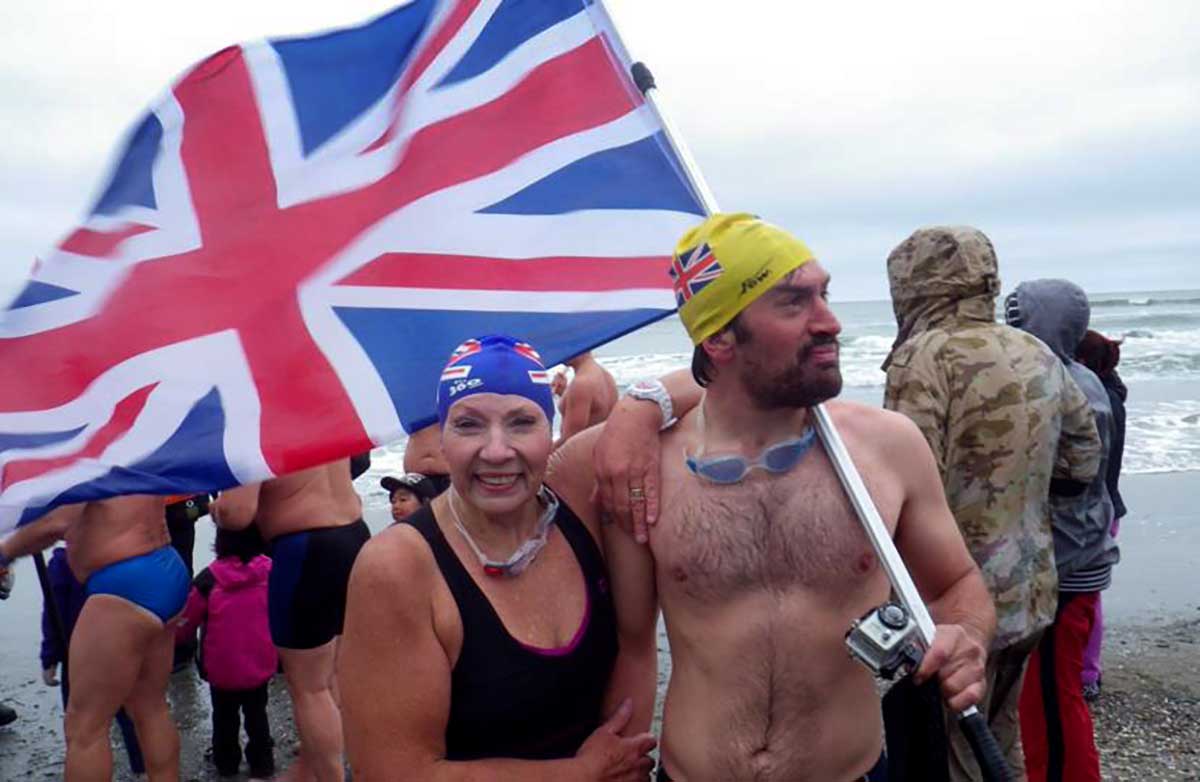
Jack certainly writes a good account of how things must have felt on board with the constantly changing weather, the exhaustion of seasickness, team moral, getting lost in fog, swimming in a 6 metre swell, even a giant squid… and the nagging uncertainty of whether they would succeed.
For the enthusiast, this collection of writings is an insight into the world of extreme cold water swimming. But the book also describes the emotional journey the author made during this time. Both stories equally fascinating.
